I've played all 1,000 Wordles and only lost once — here are my tips
Wordle celebrates its 1,000th birthday today and I've been there every step of the way (kind of)
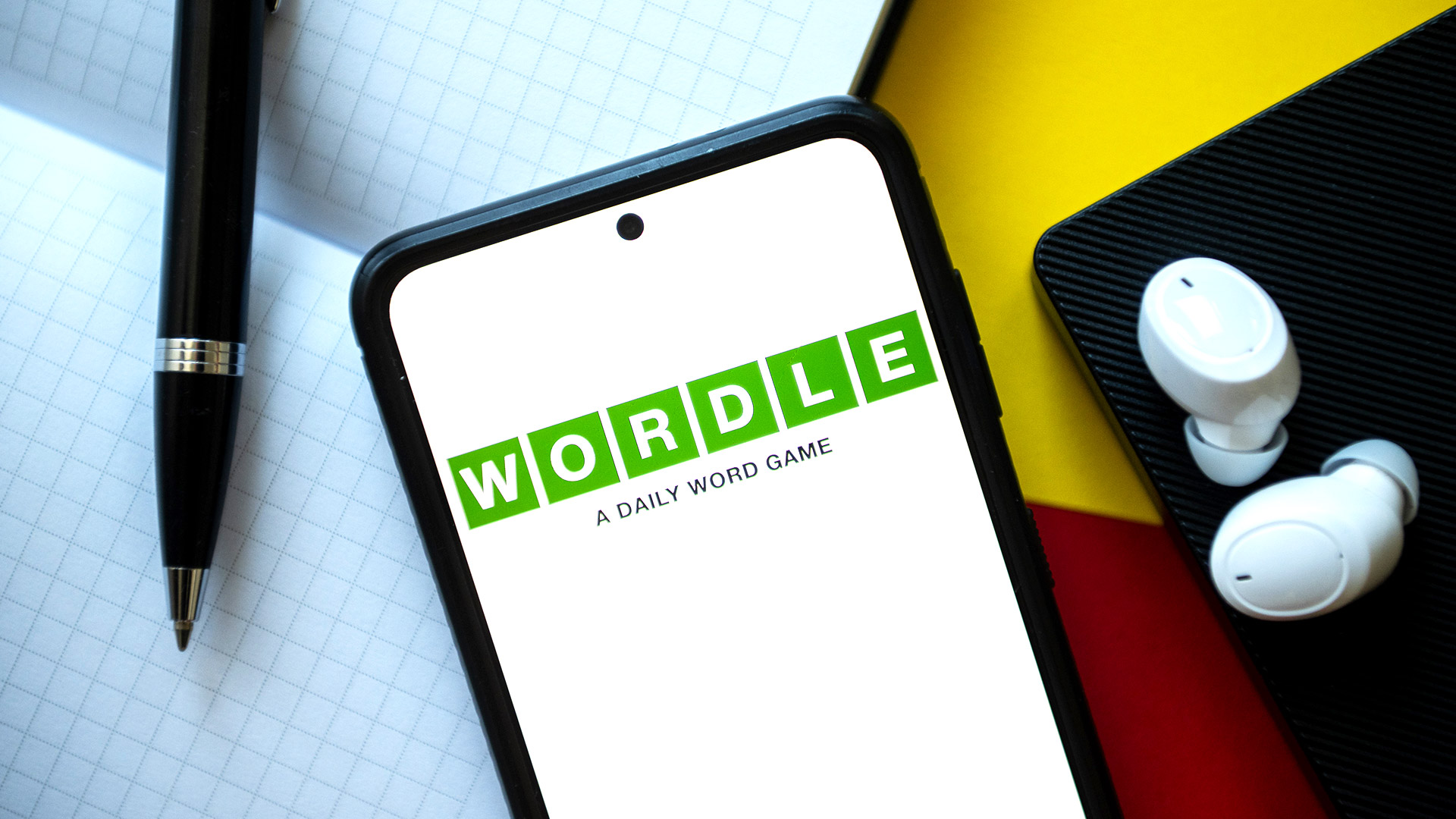
Sign up for breaking news, reviews, opinion, top tech deals, and more.
You are now subscribed
Your newsletter sign-up was successful
On 19 June 2021, a simple new online game called Wordle made its debut. Today, it reached puzzle #1,000 – and I've played every single one.
I've played through vacations and family crises and several job changes. I've played through war and elections and World Cups, and through rain and shine. I played at my sister's wedding, I played at a four-day music festival, I played when I was sick. Obsessive, much?
Technically, Wordle is 1,001 games old, not 1,000, because its first puzzle was #0. But we'll skip over that fact, because it would have been weird to be celebrating at #999.
Maybe, but Wordle is now as much a part of my daily ritual as brushing my teeth or feeding the dog, but with the added bonus that I can write about it in my Wordle today column. (I could write about feeding my dog, but it would be a lot less interesting.)
So, what do you learn about the game from playing that many times, and losing only once? Here are my thoughts.
More Wordle 1,000 stories
- I analyzed the first 1,000 Wordles to look for patterns — here's what I found
- Wordle is 1,000 — these are the 50 hardest games so far
1. Streaks count for more than high scores
Most of what I've learned from playing Wordle isn't that useful – for instance, that I struggle with five-letter words that end in ER, or that I don't know what BORAX is. But some of it is useful, at least when it comes to the art of streak preservation.
I speak from experience, because my Wordle streak is now at 800. That's more than two years of daily play without a single loss.
That certainly isn't because I'm a genius (not that anyone suggested I am). Rather, I seem to be the Wordle equivalent of a tardigrade, able to survive in all conditions and emerge unscathed.
Sign up for breaking news, reviews, opinion, top tech deals, and more.
I escaped with a 6/6 for RIPER, for instance, the second hardest Wordle of 2023. I solved SASSY, another tough Wordle, again with a 6/6.
I got lucky with PARER, arguably the hardest ever, by rolling the dice on the final guess to decide between PARER, PAYER and PAVER. (I wouldn't recommend that as a general strategy.) And I solved the likes of WATCH and FOYER and GAWKY and CACAO and FLUFF and CAULK and TACIT and all the other Wordles that people failed on.
As I said, I'm not a genius – so how did I do it? Namely, by playing it safe. It's all about spotting the traps and not falling into them, being cautious when your instinct tells you to take a risk.
For instance: -ATCH words. There are more than six of these: WATCH, PATCH, HATCH, LATCH, CATCH, BATCH and MATCH. Guessing one after the other is not smart play. You might escape with a 3/6 or 4/6 – but you might also fail. Guessing CLAMP, though, will rule out four possible answers in one go. Even if it's not right, you'll have only three left to choose from and your streak will be safe.
Don't be a hero. Be a survivor.
2. The Wordle Archive is much missed
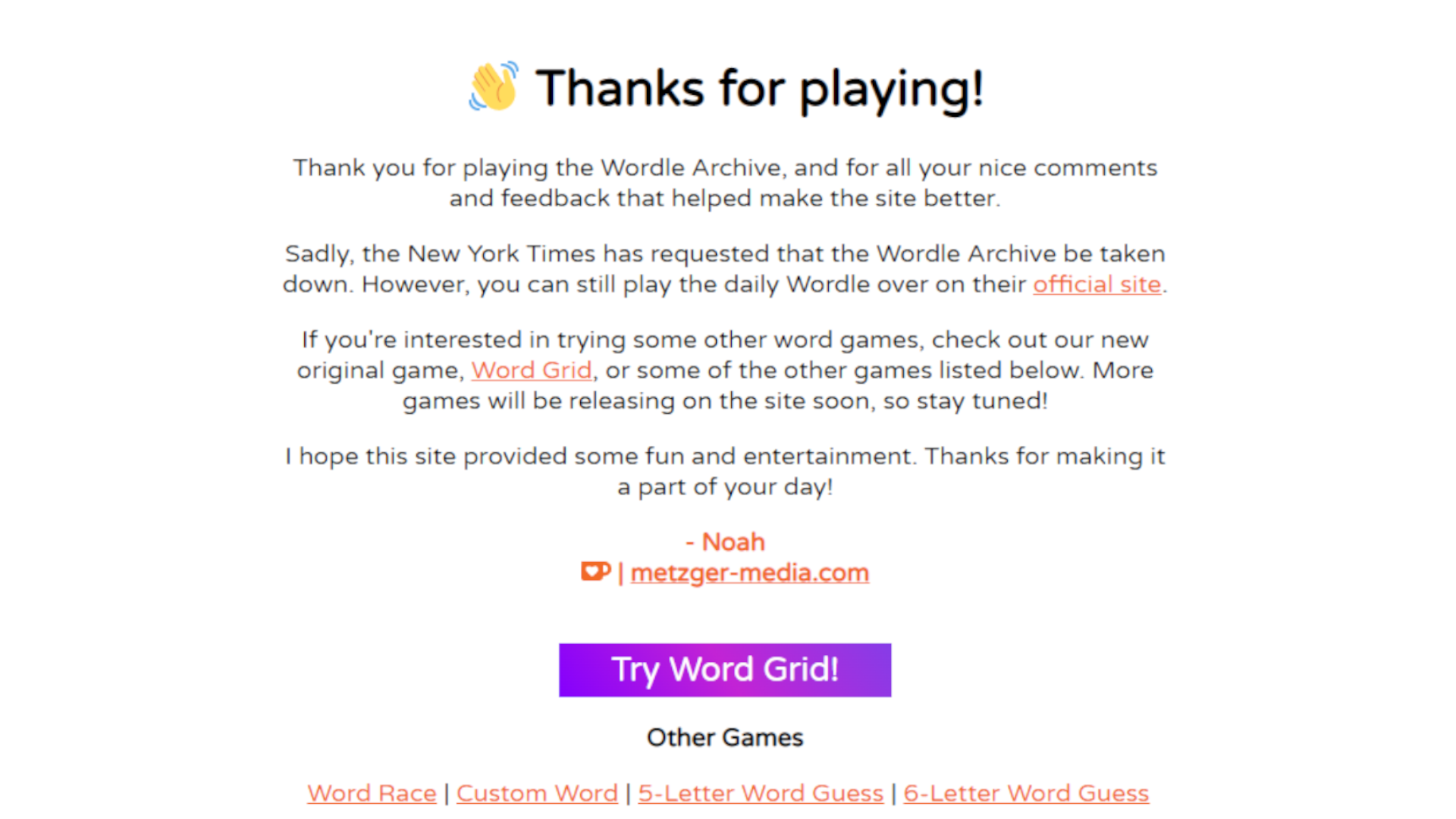
I only began playing Wordle in January 2022, so how have I managed to complete all 1,001 Wordles? It's all thanks to the now dearly departed Wordle Archive.
This site sprang up as soon as the game went viral, offering the chance to replay previous Wordles exactly as they had appeared. Each could be played in date order or you could select a puzzle of your choosing, which was handy if you'd recently missed one.
It was a godsend for Wordlers who didn't start playing until early 2022, which was most people. I was one of them, and took the opportunity to play through from the very first Wordle (CIGAR, since you ask) right up to where I'd started (#198, SIEZE).
I completed them as if in real time because I loved the idea of being able to boast that I'd never lost a Wordle (yes, I am that shallow). Unfortunately, along the way, I did lose one game – and it was a stinker. The answer to puzzle #78 was WOOER, and I maintain that it is the most ridiculous Wordle yet, and not just because it beat me.
Seriously, WOOER? How often have you ever seen or used that word? It's just ridiculous. Still, 1,000 out of 1,001 is a pretty good record anyway.
Sadly, the New York Times closed down the Wordle Archive soon after it bought the game in March 2022. If I could request one new Wordle feature from the NYT, it would be to bring it back so that others can try all the many games they missed out on.
3. A vacation can cost you your streak
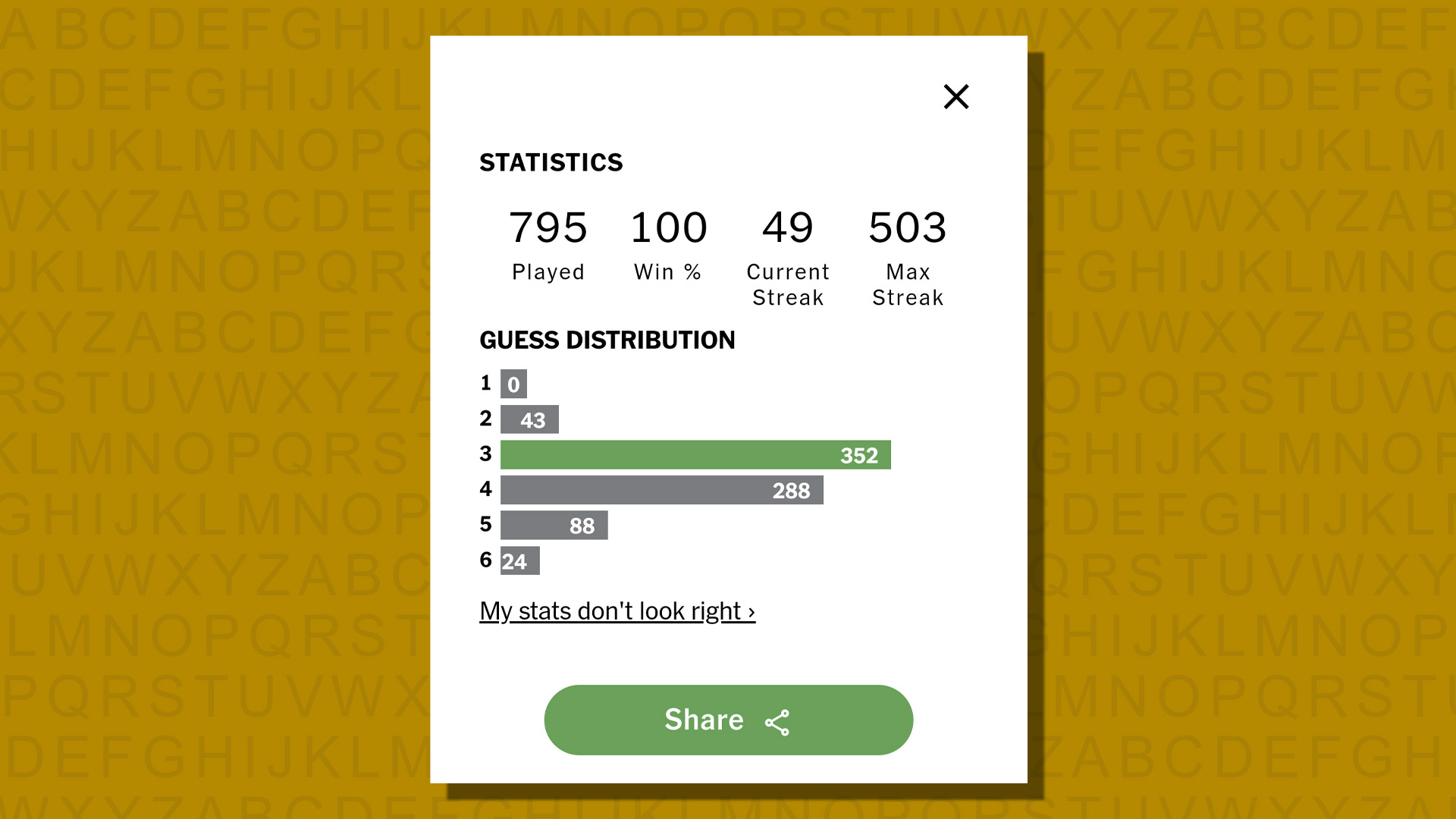
Though I've reached 800 games unbeaten, my official Wordle streak is only 49 – and for that, I pin the blame squarely on the New York Times.
The problem, as no end of Reddit posts confirm, is that Wordle seemingly can't handle a change of time zone. Twice I've played at midnight when abroad and found the next day that my streak has reset itself. I've also lost it once when I was at home, and the app just failed to register that I'd played.
This doesn't really matter, because I write about Wordle every day and have screenshots of every game. I know I've played, even if Wordle doesn't. But you'd imagine it would be an easy thing to fix. The ball is in your court, NYT.
4. Hard mode sucks
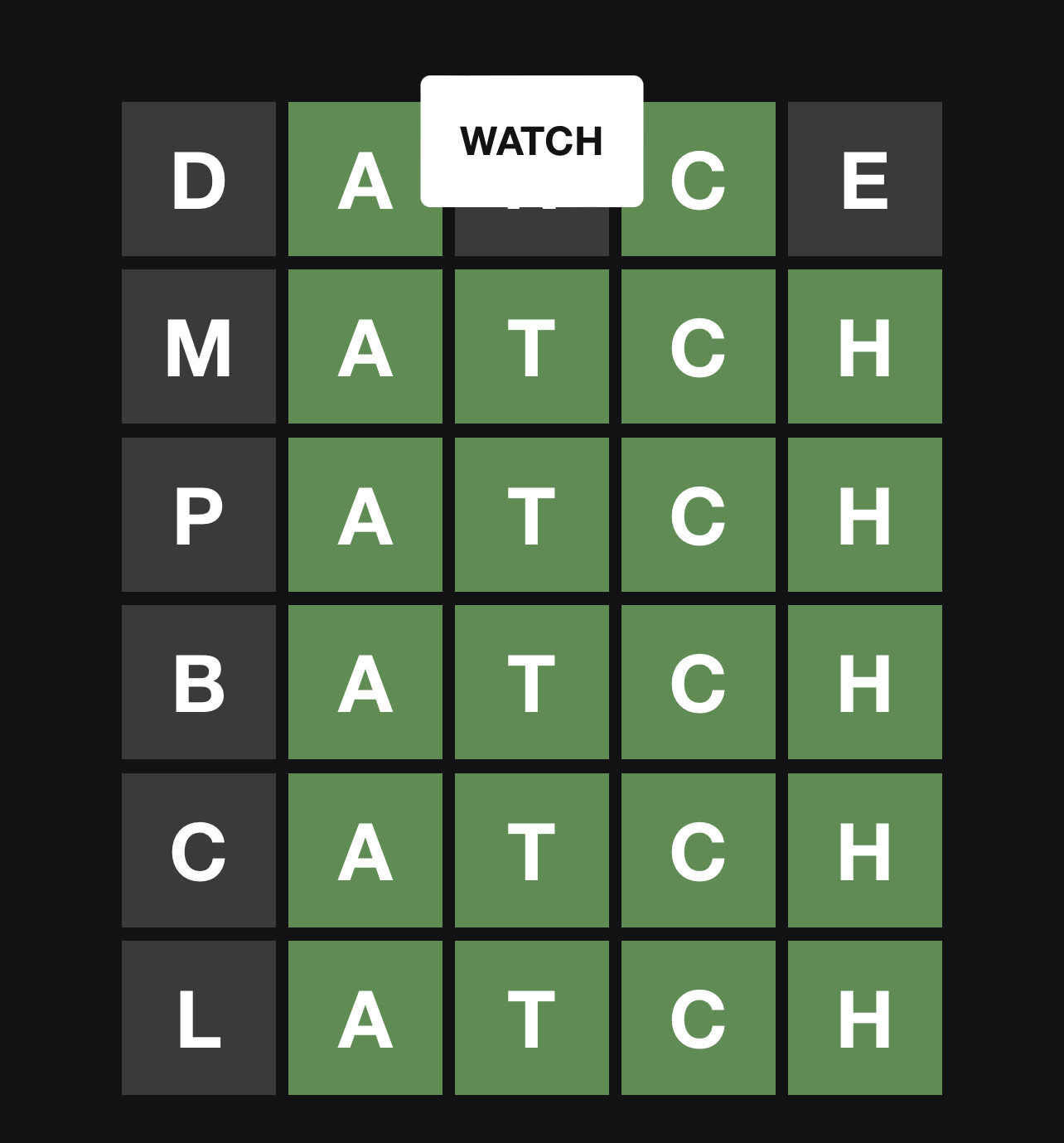
That -ATCH trap I described in #1? In hard mode, it will almost certainly screw you over, because you have to keep playing the same pattern each time.
The only way to avoid it is to plan for those eventualities and avoid getting stuck with those -ATCH letters, but that's almost impossible given that it's not the only trap you could fall into. For instance, there's the -OUND trap, or the --TER trap or the -AN-Y trap.
Hard mode therefore reduces those most difficult games to luck, and that's not the way I want to play it. If you do, that's your call – but you probably won't beat my streak.
5. Start words really do matter
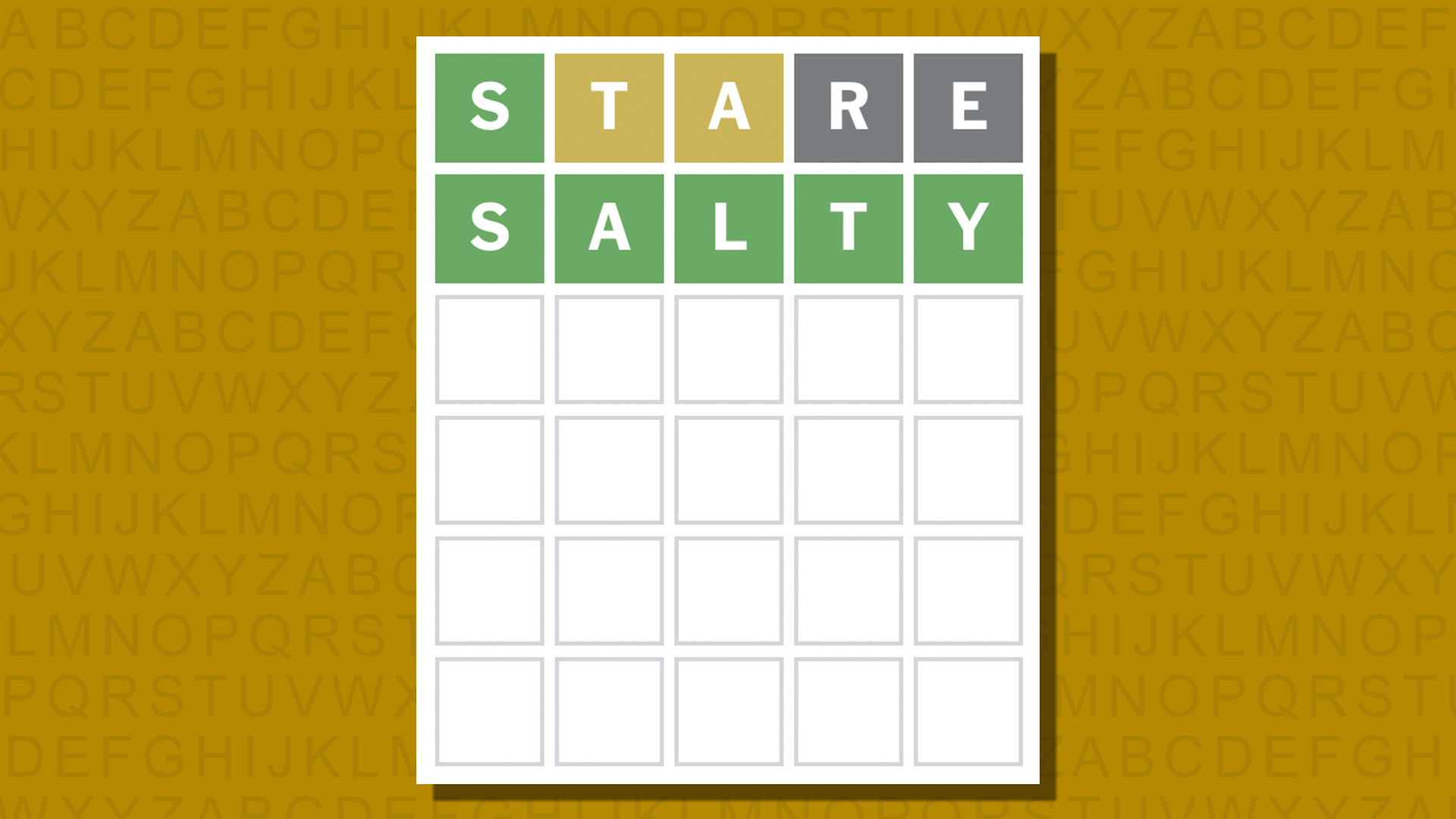
If you don't use a good start word, you are putting yourself at a disadvantage right away, and that's a fact. It's a fact because mathematicians say so – and mathematicians are smarter than you or I.
It all comes down to statistics. There are only so many ways the 26 letters of the alphabet can be organized into words, and there are only so many of those words in Wordle. Certain letters – for instance A, E, R, O, and T – are more common in Wordle than others. Some (e.g. S, C, B) are very common at the start. Still others (Y, T, R) are very common at the end. I dig into all of this more in my analysis of Wordle's first 1,000 games.
Put that all together and you can make algorithms that do complicated things I don't entirely understand, and determine the best possible word to play on a first guess.
I explain all this in my guide to the best Wordle start words, and also my reasoning behind why I stuck with STARE for the first two years that I played. But whatever you choose, the key thing is that you don't change each day and you don't pick something silly like OUIJA just because it has lots of vowels. Although that said…
6. …but playing without one is more fun
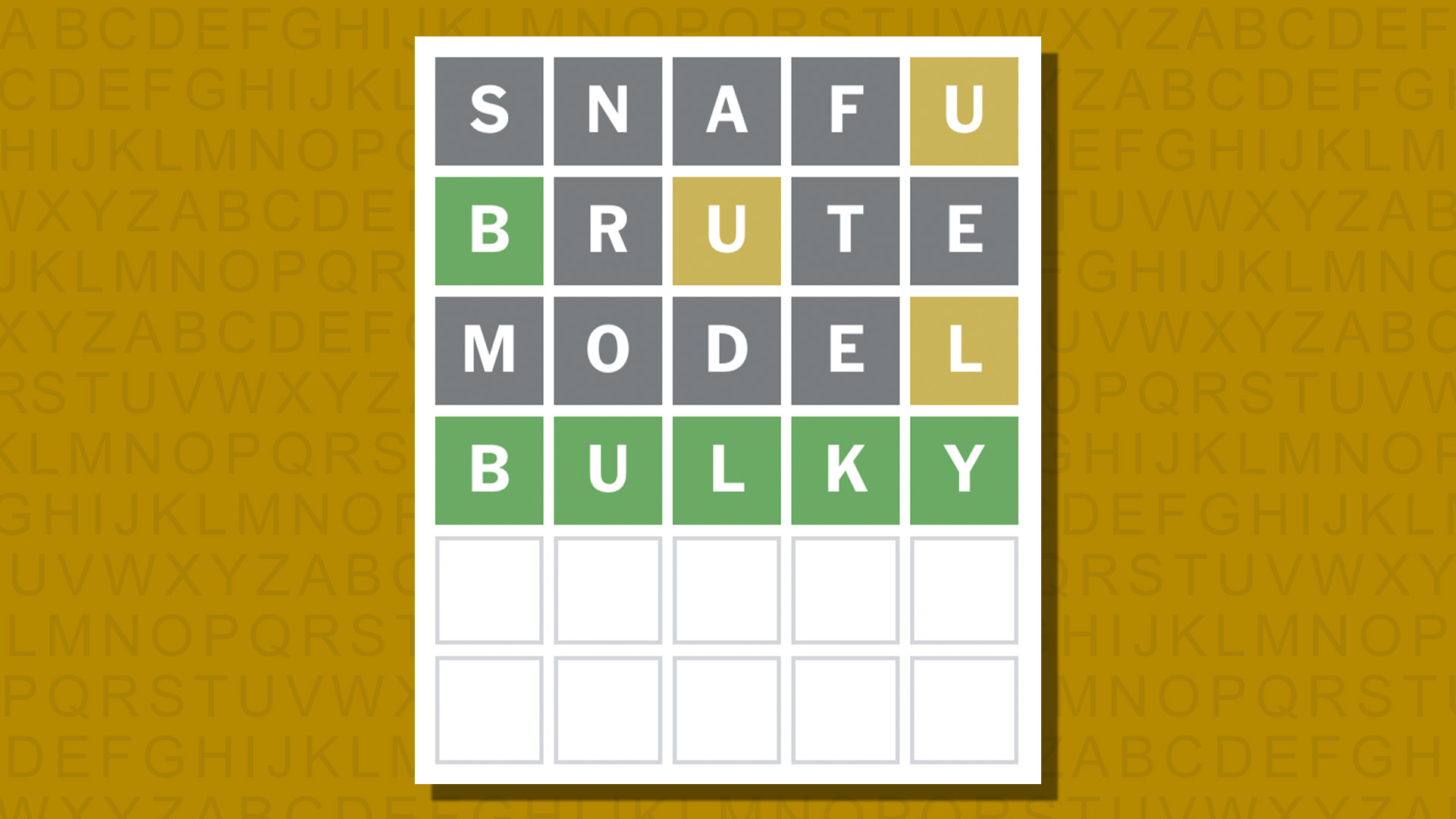
Forget everything I said above! Well, not really – it's all true. But since January I've been ignoring my own advice and using a random start word each day, rather than sticking with STARE as I had previously.
Why? Well, mainly because I was getting a bit bored. If you use a start word for a long time, you begin to recognize the patterns that appear each day. For instance, if I drew a blank I'd know that CLOUD would give me the best second guess. If I got a single green E, I'd play CLING.
After a while, this can all become a bit formulaic. And it certainly doesn't make for the most interesting fodder for a daily Wordle column.
Using a random opener is definitely more interesting. Rather than my scores generally all being 3/6s, with the odd 4/6 or a 5/6 on a tough day, they're veering all over the place. I'm on a Wordle rollercoaster, and it's both exhilarating and terrifying! (Within reason – this is only an online word game, after all.)
7. ADIEU is not a good start word
ADIEU is the most popular start word in Wordle, presumably because it includes four of the five common vowels. That makes some sense because vowels do feature in almost all of Wordle's 2,309 original answers list. However, they're not nearly as useful as consonants.
Think of it this way: you know there are going to be one or two vowels in most Wordles, occasionally three or four. You only have five to choose from. Uncovering the right ones is therefore not difficult. But consonants? Well, there are 21 of those, if we include Y (which is sometimes counted as a vowel).
Vowels don't give a word its shape, consonants do. Knowing that your answer contains T, N, and P tells you a lot – it's probably going to be PLANT or POINT or PAINT. There are maybe a dozen possible answers. But knowing that it contains A, E, and I? Well, there are two or three times that number, maybe more.
ADIEU is fine, it's very helpful on some days and somewhat helpful on most. But if you've accepted that a constant start word is a good idea, why not use one of the best ones rather than an also-ran?
8. Second guesses are almost as important as openers
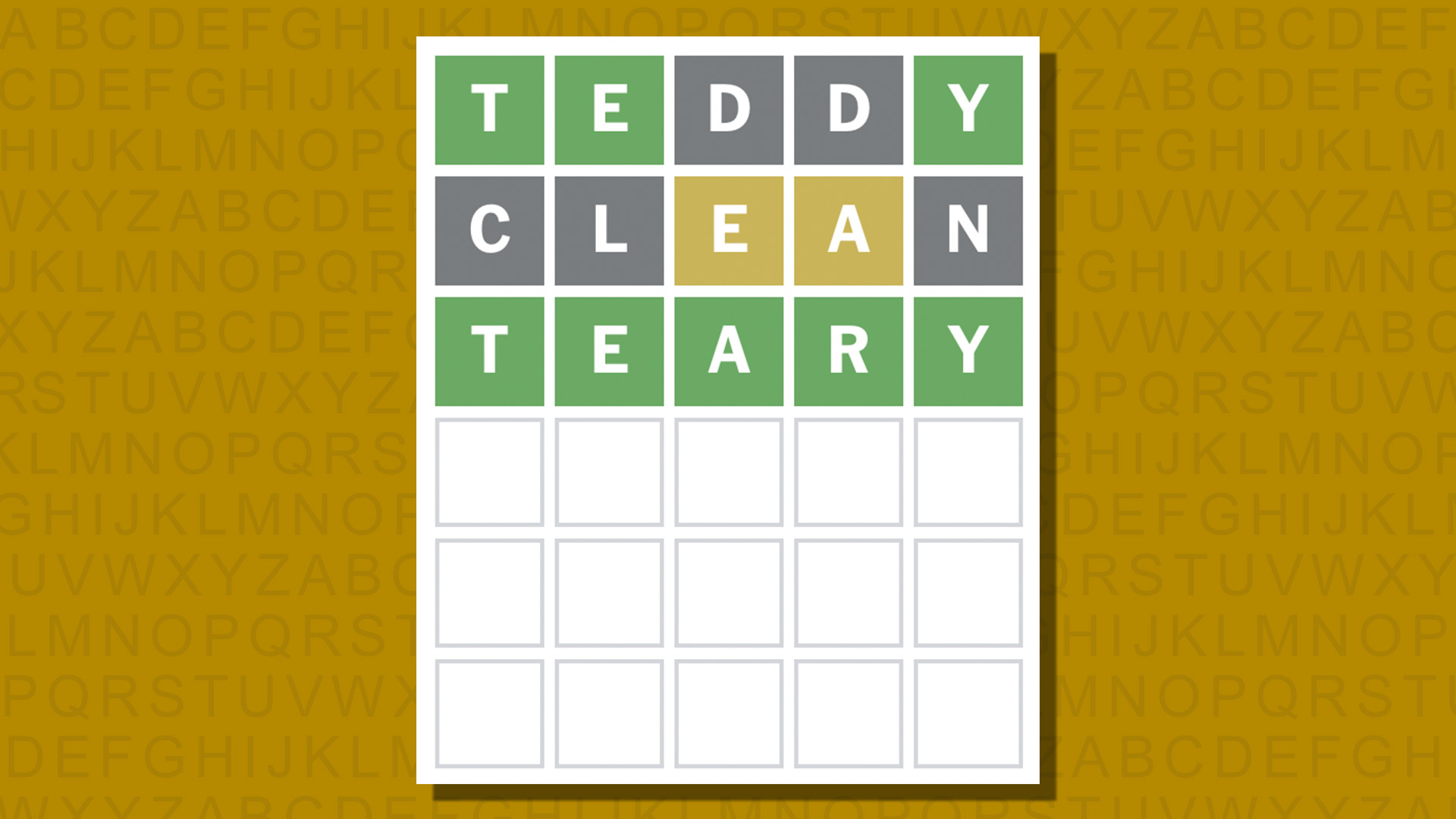
It can be really tempting to start shooting for the answer on the second guess – but don't do it. Well, not unless you can see there are not many answers left and your odds are good. Sure, you might get a 2/6 with an inspired guess, but more likely you'll end up with a 4/6 or worse.
If you use the second guess wisely, you can often all but guarantee a 3/6 instead. The key thing is to get a really good idea of what answers are possible – use a notepad if it helps – then play the word that narrows it down best. And that includes leaving out green letters if you have any.
This will go against your instincts because you'll know it's not going to be the answer. But realistically, you're not going to guess correctly if you have more than about 20 answers to pick from. Better to improve the odds that you don't end up failing entirely.
9. It's a bad idea to play when drunk
I've only done this a couple of times, when I've been on a night out past midnight and have decided it's a good idea to get my Wordle fix in early. Note to self: do not do this again.
Alcohol and word puzzles mix about as well as alcohol and social media: you won't type what you mean to, you won't consider the consequences of what you're doing, and it will all end badly (or, in my case, in a 6/6 that could easily have been a fail).
10. Playing against friends is more fun than going solo

At its heart, Wordle is a social game. That's clear from the fact that it has a built-in method for sharing over social media without giving away spoilers. Plus, the fact that everyone gets the same puzzle each day makes it an obvious target for group competition.
I share my scores with a bunch of friends daily, and it's one of the key reasons why I keep playing. Obviously, I want to beat them each day, but more than that it's the way those interactions lead to random conversations that have nothing to do with Wordle. Would we chat daily without Wordle? Maybe, but this makes it a sure thing.
11. It really helps to have a good memory
There have now been 1,001 Wordle answers, and that's a lot of words to remember. I've played them all at some point and I can't get close to recalling them all.
But I do remember quite a lot of them, probably because I've been writing this column for either TechRadar or our sister site Tom's Guide during most of those 1,001 games. I couldn't say what the answer was on a given day, but I can tell you that FOYER has definitely been a solution, and so has TIGER, and SLATE, and BAYOU, and maybe 100 or so more.
The ones I remember, typically, are either the really tough ones (RIPER and JOKER and JAZZY and NANNY) or the really stupid ones (I'm looking at you, EGRET, and also you, KAZOO – and don't try to hide at the back there, SNAFU).
Where it gets difficult is with the words that are similar to each other. I know we've had a few -OUND games now, but have we had BOUND? FOUND? SOUND? MOUND? I'm lost when it comes to this kind of thing.
Fortunately, for those times when you simply can't remember, there's always a past Wordle answers list to help. I don't look at one myself when playing, but there's no shame in doing so if you want to.
12. There are a lot of five-letter words
Seriously. Wordle has 2,309 of them in its list of answers, but more than 10,000 are accepted as guesses. And I definitely did not know them all beforehand.
Most of the actual solutions are pretty common as words go, but not all of them are – I remember CAULK (game #244) causing people many problems, and the similar EPOXY (#280), too. EGRET (#378) was one that I wasn't sure was a real word, but that I guessed anyway because it fit and solved in 4/6.
CACAO (#364), PINEY (#500), AXIOM (#520), AORTA (#552), RAYON (#817), SCRAM (#969) and ASCOT (#971) are all further examples of relatively obscure words making their way into the answers list. And of course BORAX. Never forget BORAX.
In short, expect the unexpected. If you have RADI- then you'd be forgiven for guessing RADIO next – but it's just as likely to be RADII, and it's important to always keep that in mind.
13. Wordle is just a game… maybe?
Obviously I take all this too seriously. But self-awareness is a thing, and I think I have it where Wordle is concerned. If I lost my streak (and I mean properly lost it, as in failed a game), I could cope, and there are far more important things in life.
But then I think about what it would really be like if I lost my streak and I get a little panicked. All that time poured into playing it and writing about it, and then I have to start all over again. Could I do that? Would I have the mental strength to play for another two years to try to beat my score?
Probably not; I'd do what sensible people do, and play for fun. And you know what? That would be a bit of a relief.
But on the other hand… no way is that going to happen. Here's to the next 1,000.
You might also like
- Wordle has a new best start word – but I won't be using it
- Today's Wordle marks the start of a new era for the game - here's why
- What is Wordle? Rules, strategy and everything you need to know

Marc is TechRadar’s Global Editor in Chief, the latest in a long line of senior editorial roles he’s held in a career that started the week that Google launched (nice of them to mark the occasion). Prior to joining TR, he was UK Editor in Chief on Tom’s Guide, where he oversaw all gaming, streaming, audio, TV, entertainment, how-to and cameras coverage. He's also a former editor of the tech website Stuff and spent five years at the music magazine NME, where his duties mainly involved spoiling other people’s fun. He’s based in London, and has tested and written about phones, tablets, wearables, streaming boxes, smart home devices, Bluetooth speakers, headphones, games, TVs, cameras and pretty much every other type of gadget you can think of. An avid photographer, Marc likes nothing better than taking pictures of very small things (bugs, his daughters) or very big things (distant galaxies). He also enjoys live music, gaming, cycling, and beating Wordle (he authors the daily Wordle today page).